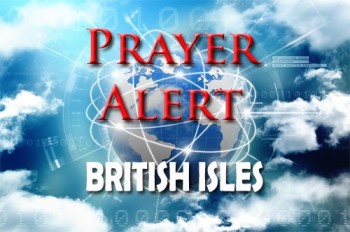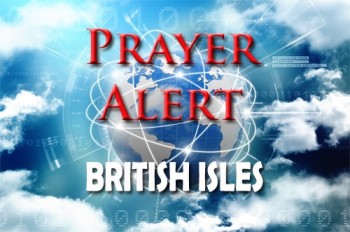Displaying items by tag: Refugees
Thailand: life in limbo for Myanmar refugees as aid dries up
Refugees living in camps along the Thai–Myanmar border are facing a deepening humanitarian crisis as food and medical aid is sharply reduced, even as they gain the long-denied right to work legally outside the camps. Decades-old assistance systems have been disrupted by Donald Trump’s major cuts to USAID and other humanitarian funding, leaving more than 100,000 refugees struggling with food shortages, declining education access, and collapsing healthcare services. Monthly food credits have been suspended for most families, forcing many to rely on dwindling savings or informal work, while only the most vulnerable continue receiving limited rations. Clinics once run by international agencies are now barely functioning, with severe shortages of medicines and trained staff. Educators warn hungry children may drop out of school to work illegally. Amid this hardship, Thailand’s decision to allow refugees to work legally offers a rare lifeline, restoring dignity and self-reliance: it could fill a migrant labour shortage after the conflict with Cambodia in July triggered an exodus of Cambodian workers. Yet fears of exploitation, family separation, and limited job opportunities remain, underscoring the fragile balance between hope and desperation.
Germany: ten years after Merkel opened borders to migrants
Ten years after Angela Merkel opened Germany’s borders to migrants with her famous ‘We can do this’ pledge, the nation continues to grapple with the political and social repercussions. Syrian refugee Anas Modamani, who arrived alone at 17 after a perilous journey and became briefly famous for a viral selfie with Merkel, now lives in Berlin with German citizenship and an IT career. Between 2015 and 2024 Germany registered 2.6 million first-time asylum requests - over a third of the EU total - primarily from Syria, Afghanistan, and Iraq. While many Germans initially embraced ‘Willkommenskultur’, the mood has now changed significantly, evidenced in the rise of the far-right AfD. Current chancellor Friedrich Merz has tightened border controls, though courts have blocked some measures. As public opinion hardens - 68 percent now favour fewer refugees - applications from Syrians and Afghans have fallen. Modamani senses a colder atmosphere and says he might leave if hostility grows.
UK to deny citizenship to small boat refugees
The Government has introduced new immigration rules making it nearly impossible for refugees who enter illegally - including those arriving by small boat or concealed in vehicles - to obtain British citizenship. From 10 February, applications from individuals who previously entered the UK illegally will normally be refused, regardless of how much time has passed. The Home Office defends the policy as strengthening deterrence, ensuring those who bypass legal entry routes face long-term consequences. However, critics argue that the change creates second-class citizens and contradicts international law, which states that refugees should not be penalised for illegal entry. The new Asylum and Immigration Bill will scrap the Rwanda deportation plan, increase police powers against people smugglers, and criminalise endangering others during illegal crossings. Former home secretary Lord Blunkett has urged parliamentary oversight, warning of the impact on children’s rights and stateless individuals.
Afghanistan: thousands face enforced repatriation
Shakoofa Khalili and her family fled Afghanistan after the Taliban’s takeover in 2021, hoping for resettlement in the USA. Along with thousands of others, they have been stranded in Pakistan, awaiting visas that may never come. Khalili once worked for a US-funded child protection programme, but now she and her family fear deportation to Afghanistan. Donald Trump’s suspension of the US Refugee Admissions Programme (USRAP) has locked out many Afghans, particularly women, who now have no legal protection. Pakistan’s government is implementing a repatriation plan which could affect thousands: advocacy groups warn that returnees face arrest, torture, or execution. For Khalili, the fear is personal - her young daughter was severely traumatised when she witnessed her father almost being arrested by police. With no clear path to safety, thousands of Afghans remain in hiding, praying for intervention before time runs out.
Mozambique: post-election violence, calls for peace
Violence has gripped Mozambique following disputed elections on 9 October; the situation worsened after Daniel Chapo was officially declared president on 23 December. Adding to the feeling of insecurity, on Christmas Day over 1,500 prisoners escaped from a maximum-security prison in Maputo. Violence, deaths, and looting have driven thousands to flee to Malawi and Eswatini, straining resources when those countries are already grappling with drought and poverty - and the aftermath of Cyclone Chido, which devastated the region. In northern Mozambique, ongoing attacks in Cabo Delgado since 2017 have already displaced hundreds of thousands. Refugees face dire conditions in overcrowded shelters, with inadequate food, water, and sanitation, raising the risk of disease. Christian organisations are mediating peace efforts and engaging in prayer: Tearfund has joined their call for dialogue and reconciliation, urging Christians worldwide to pray for peace in Mozambique and relief for the displaced.
Net migration reaches new record in 2022
The UK experienced a record net migration increase in 2022, with figures revised to 745,000 for the year ending in December, up from a previous estimate of 606,000. This surge is partly attributed to an influx of overseas professionals in sectors like the NHS and care homes. Labour criticised the government's handling of immigration, pointing to the high number of asylum seekers in hotels and a significant increase in visas issued to skilled workers. Asylum seeker figures remained stable, with 76,000 applications and 56,042 people in hotel accommodations. There was a notable decrease in small boat arrivals, especially among Albanians, though the reasons for these fluctuations remain unclear. Enver Solomon from the Refugee Council emphasised the genuine need for protection among asylum seekers and urged against the Rwanda deportation plan, advocating instead for community integration and support for refugees. In a new development, immigration minister Robert Jenrick has put forward to No 10 proposals aimed at reducing the level of immigration: see
Yemen: portraits of resilience
They fled war and violence to find safety. They lost their homes, family members, neighbours and friends. They live in makeshift shelters, not knowing when they’ll be able to return home. In Yemen, millions are trapped in the world’s worst humanitarian crisis, hoping for a better future. Abidah said, ‘We fled Hudaydah because the war was affecting my daughter. The sounds of rockets hitting the port terrified her. She screamed and could not stop. Now we’re in Aden, she has started talking again.’ An elderly father of ten said, ‘The war made us lose our humanity and value. Life in Aden’s camp is tiring. But complaining to someone other than God is humiliating. We have no future, it’s gone. I hope for a future for our children.'Thousands of children have been killed or maimed since the conflict began. Thousands more have been recruited into the fighting. Years of conflict, misery and grief have left millions in need of mental health and psychosocial services.
Home Office asylum contractors price out homeless
The Home Office (HO) is leaving British people homeless by outbidding local councils for accommodation. HO contractors are bidding for accommodation for asylum seekers, while the number of British people having to stay in temporary accommodation is near record levels. Asked on three separate occasions why its contractor paid more than councils can afford, the HO refused to comment. The problem is most acute in London, where 166,000 people are in temporary lodgings - more than the population of Oxford. There was no suggestion that the HO or asylum-seekers created the problem, but it is contributing to homelessness. The councils are spending £52m a month on temporary accommodation and will not outbid each other, because they want to protect taxpayers. There needs to be the same partnership with the HO. Pray for housebuilders to invest in building more affordable housing.
Myanmar: army cuts off aid to cyclone survivors
Millions who survived Myanmar's strongest cyclones are struggling to rebuild their lives. Aid trickled in until 8 June, when Myanmar's army rulers banned transport for aid groups operating in the area, making it impossible for them to deliver aid. ‘The move has turned an extreme weather event into a man-made catastrophe.’ said Human Rights Watch. Cyclone Mocha hit in May, killing hundreds. Families are reeling from dwindling aid a month after their homes were destroyed. ‘There isn't enough water or food and finding them has become much harder with the monsoon under way’, says Aye Phyu. ‘It's been raining all week. We struggle every day. The children are studying in a school with no roof. When the storm hit all the houses collapsed. There is nowhere to stay.’ Only a fraction of homes have been repaired after the storm destroyed over 2,000 villages and 280,000 homes in Rakhine state, where 78% live below the poverty line.
Syria: Assad welcomed by Arab League
President Bashar al-Assad joined the Arab League summit in Jeddah and was embraced by the Saudi crown prince. A decade ago, the Saudis funded anti-Assad militias; now they want to remake the Middle East and need Syria onside. Assad insists, ‘Other countries should not interfere with what happened inside Syria’s borders. It is important to leave internal affairs to the leader and his supporters.’ Between them, princes and presidents at the summit have locked up many thousands of their opponents. Syrians blame the Assad regime for destroying their country. Over a million Syrian refugees have fled to Lebanon, but recently Lebanon sent 1,500 back to Syria at gunpoint. The UN insists Syrian refugees cannot return home until their country is safe and secure. The Assad regime remains under US and European sanctions. Amnesty International said, ‘Assad has turned Syria into a slaughterhouse’. President Bashar al-Assad broke his country to save his regime. There has been no justice for his victims.









